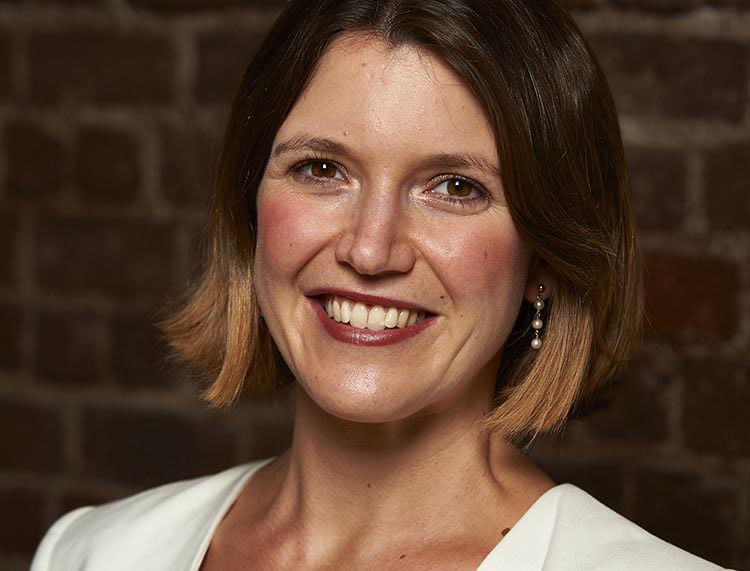Ensuring #GCSEResultsDay2019 is a celebration for all

The current gap that exists in the attainment of disadvantaged pupils compared to their peers was scrutinised in the recent Education Policy Institute (EPI) Education in England Annual report.
Disadvantaged pupils are 18.1 months behind their peers by the time they finish in formal education #ResultsDay2019 @EduPolicyInsthttps://t.co/ajnhOpQvVJ
— FE News (@FENews) August 21, 2019
It highlights how for these young people it won’t necessarily be a day of celebration and their GCSE results will not be a true reflection of their ability – but actions can be, and are being, taken to change this. Education charity CEO Susannah Hardyman explains:
GCSE Results Day marks the culmination of a year’s worth of hard work and effort by both pupils and teachers.
In recent times, schools have faced the added struggle keeping on top of curriculum changes and improving pupil grades against a tough funding climate, something we’ve heard about repeatedly from our partner schools across the country. Yet, this is a time when we really should not be compromising our support for these young people, particularly those who are facing socio-economic disadvantage.
The “Education in England” Annual report showed that at secondary level, disadvantaged pupils are 18.1 months behind their peers by the time they finish in formal education. In fact, the EPI report suggests if this pace continues, it will take 560 years before disadvantaged pupils and their peers are reaching similar outcomes – a staggering and deeply troubling figure.
Sadly, today’s national GCSE results will no doubt be an illustration of what these statistics look like in reality, demonstrating the impact socio-economic disadvantage is having on the lives of thousands of young people across the country. By missing out on the grade 4s, 5s and above, their futures will be a much tougher climb than their peers to access further education, employment or training.
Yet, the results they receive today are not a reflection on their ability; they instead reflect the challenging circumstances these pupils are living with – without access to the same levels of support and opportunities as their peers.
Private tutoring not an option their parents can afford
One example of these opportunities is private tutoring. The Sutton Trust’s annual poll confirmed that 41% of pupils in London have had a tutor, and that nationally the figure remains high at 27%. As a mother myself, I understand why so many parents will pay for tutoring: parents really do want the best for their children.
If that means paying for a tutor to support them in their learning, that’s something that they will do if they have the means. But when the average cost of a private tutor in the UK is £30 per hour, for the majority of disadvantaged young people that is simply not an option their parents can afford.
At Action Tutoring we know how impactful tutoring can be, with strong evidence backing this up. Through the use of volunteer tutors, Action Tutoring is able to deliver this to a disadvantaged pupil completely free of charge.
We are working now to provide tutoring support to disadvantaged pupils to ensure they are not being sent down the path that the research so sadly predicts. Our aim is that they can leave school with the qualifications that will enable them to progress to further education, employment or training and avoid the cycle of becoming NEET.
The way we deliver our support is, in many ways, quite different to private tutoring: we work in partnership with schools and our tutors are all high quality volunteers – generously giving their time to make a difference to the lives of these young people.
100% supported pupils able to match national pass rate
In 2017-18 our impact analysis showed the disadvantaged pupils we supported were able to match the national pass rate, after the equivalent of two terms of weekly tutoring, at GCSE level despite the extra hurdles they faced. This is despite the pass-rate for disadvantaged pupils tending to fall 15-20% behind the overall national figures, in English Language and maths GCSEs respectively.
We are eagerly waiting to hear how our pupils from this year have got on – we hope it’s a day of celebration for them all, and that we’ve have helped to place them on a firm footing alongside their peers.
This year we’ve supported over 2,400 pupils through a network of over 1,100 volunteer tutors across seven cities in England, at both primary and secondary level. Our impact and evidence base is ever growing: tutoring works and we’re proving that our model works too.
 At our Impact Report event earlier this year Rt Hon Nick Gibb MP, shared his support:
At our Impact Report event earlier this year Rt Hon Nick Gibb MP, shared his support:
“Action Tutoring’s 2017-18 Impact Report shows that it is possible to close the attainment gap and Action Tutoring has had huge success raising attainment. The pupils are proof that regardless of your circumstances, it is possible to get crucial English and maths qualifications. Action Tutoring offers a practical, structured solution. Action Tutoring’s vision is one that I fully endorse.”
The attainment gap predictions do not have to be the reality.
We are changing the outcomes for these young people today and want to ensure that results day becomes a day of celebration for everyone.
Susannah Hardyman, Founder and CEO of Action Tutoring
About the author: Susannah was inspired to start the organisation following experiences working in the charity sector and as a private tutor, recognising the potential to make the benefits of tutoring available to those that might not otherwise afford it. Susannah has worked in the charity sector since 2007 in roles including research and project management. She has a particular interest in using the potential of volunteers for social change.
Susannah graduated from the University of Cambridge, where she studied Theology at St John’s College. She holds a Masters from King’s College London in Politics, Theology and NGOs, where she wrote her dissertation on the interplay between state and third sector welfare provision.
About Action Tutoring: Our vision is a world in which no child’s life chances are limited by their socio-economic background. Action Tutoring supports young people facing socio-economic disadvantage to achieve a meaningful level of academic attainment, with a view to enabling them to progress in education, employment or training. We do this by partnering high-quality volunteer tutors with pupils to increase their subject knowledge, confidence and study skills.
Since 2012, the charity has continued to grow and now operates in eight cities and areas across England: Birmingham, Bristol, Liverpool, London, Newcastle, Nottingham, Sheffield and Sussex.
In 2017-18 nearly 2,500 pupils were supported by over 1,100 volunteer tutors in 80 schools across the country. These pupils were able to match the national pass rate, after the equivalent of two terms of weekly tutoring, at GCSE level despite the extra hurdles they faced. Nationally only 44% of disadvantaged pupils are able to meet this benchmark.
In the same year 72% of primary pupils supported by Action Tutoring achieved national standards in their SATs.
Research carried out by the Education Endowment Foundation showed that pupils make up to five months additional progress, during an intensive tutoring programme.
The average cost of a private tutor in the UK is £30 per hour. Action Tutoring is able to deliver this to a disadvantaged pupil completely free of charge through the use of volunteer tutors. Donations, grants and school partnership contributions fund the cost of delivery and the Action Tutoring staff team.
There are almost 800,000 young people leaving school each year without the qualifications to go on to education, employment or training. Individuals not in education, employment or training cost an average £56,000 to the UK economy each year.
If you’re interested in supporting us on our mission, by volunteering with us as a tutor or in other ways do take a look at our website.











Responses